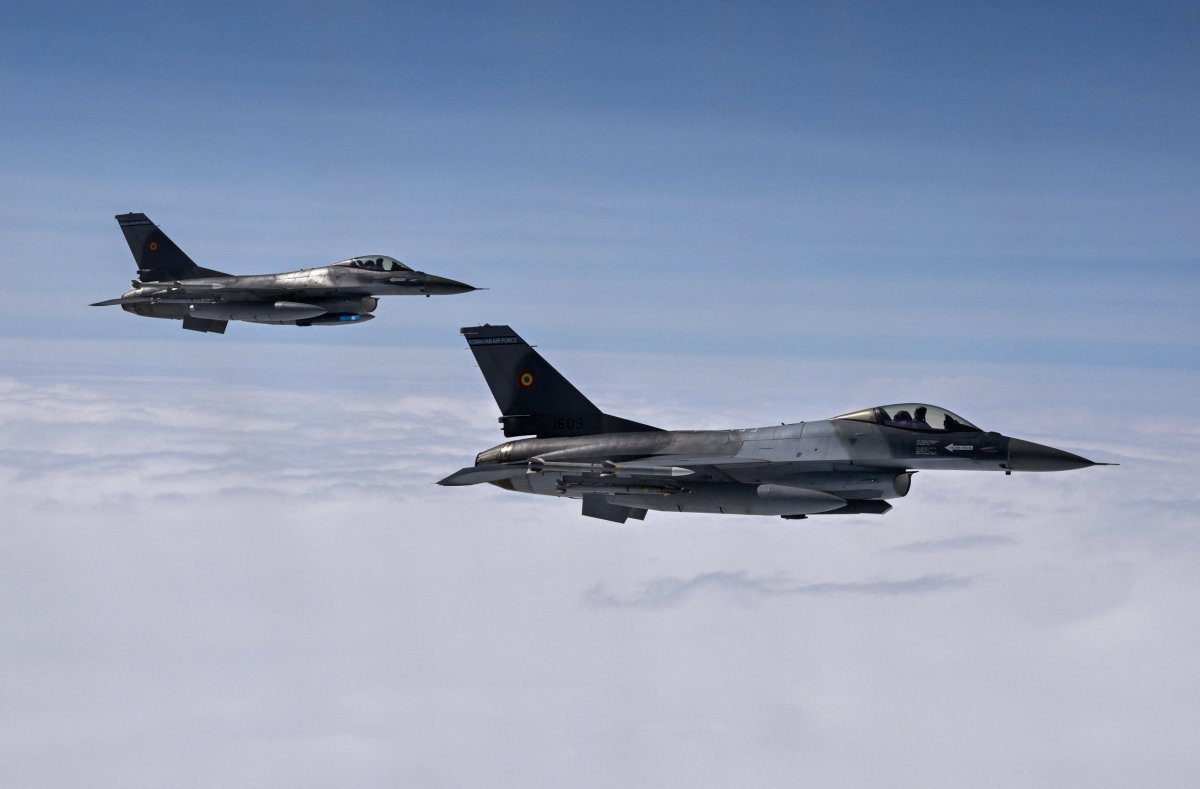NATO members in Eastern Europe have been responding to the threat of Russian aggression through the deployment of troops and boosting equipment, including fighter jets and air defenses.
The encroachment of NATO on Russian borders was given by Vladimir Putin as a justification for launching his full-scale invasion of Ukraine. But any aim by Russia to counter the alliance has resulted in an increase in the resolve of the bloc, which has provided significant military and financial support to Kyiv.
The alliance has also increased to 31 members after Finland joined last year, with the membership bid of Sweden, still pending. Over recent weeks, NATO members have announced measures to counter the threat of Russia amid concerns that the war in Ukraine could spill over into alliance territory.
In November 2022, a missile hit southern Poland killing two people although it was determined that Ukrainian air defenses were to blame. Isolated incidents of drone parts landing in Romania have also raised concerns about the war affecting NATO countries.

Last week, Bucharest announced it would move air defenses closer to villages across the River Danube from Ukraine, where Russian drones have been attacking grain facilities. It would also add more military observation posts and patrols to the area and expand a no-fly zone, Reuters reported.
The measures follow the deployment of four additional U.S. F-16 fighter jets and 100 American troops to Romania's Borcea military air base around 90 miles south of the Ukrainian city of Izmail.
The Baltic states of Estonia and Latvia, which share a border with Russia and joined the alliance in 2004, agreed on September 11 to a 1 billion euro ($1.1 billion) deal for an Iris-T SLM medium-range air defense system from German manufacturer Diehl.
Estonia's defense minister Hanno Pevkur said in a statement that "Russia's barbaric war in Ukraine" showed how it was crucial to protect his military's armed forces and critical infrastructure from attacks.
It was Tallinn's biggest military investment in its history and German defense minister Boris Pistorius said the system will "without any doubt strengthen European air defense." Latvia and Estonia have also signed a letter of intent towards participating in Germany's European Sky Shield Initiative, which was launched in 2022 in response to Putin's full-scale invasion.
It comes as Latvian intelligence warned that the risk of aggressive Russian special services operations in the country will increase, which will pose a significant threat to the collective security of NATO and EU member states, as well as to Latvia. This was outlined in Riga's National Security Concept, which was approved by the government, according to Latvian news outlet Delfi.
The other Baltic state and NATO member, Lithuania, announced on September 29 that it planned to install a physical barrier near its border with Russia and Russian ally Belarus. Lithuania started monitoring its border following the start of the war in Ukraine and after hybrid attacks from Belarus, SchengenVisaInfo, reported.
Border protection measures have been boosted following an increased number of illegal migrants trying to enter the country via Belarus, it added.
In July, Kremlin spokesman Dmitry Peskov accused Poland of "hostility" towards Russia and Belarus, after Warsaw redeployed troops to reinforce its eastern border with Belarus, whose leader Alexander Lukashenko is Putin's closest ally.
Poland's move was prompted by the presence of Wagner Group mercenaries in Belarus who had started training at a military range close to the Polish border.
Since then, the Wagner leader, Yevgeny Prigozhin, has been killed in a plane crash and the mercenaries' future is uncertain.
Meanwhile, there has been a souring of Polish support for Ukraine after Warsaw said it would not suspend an EU ban on Ukrainian agricultural products that Brussels had imposed earlier this year.
Polish Prime Minister Mateusz Morawiecki Warsaw would "no longer transfer weapons to Ukraine although this was later clarified to mean only new equipment.
Newsweek has emailed NATO for comment.
Uncommon Knowledge
Newsweek is committed to challenging conventional wisdom and finding connections in the search for common ground.
Newsweek is committed to challenging conventional wisdom and finding connections in the search for common ground.
About the writer
Brendan Cole is a Newsweek Senior News Reporter based in London, UK. His focus is Russia and Ukraine, in particular ... Read more
To read how Newsweek uses AI as a newsroom tool, Click here.






